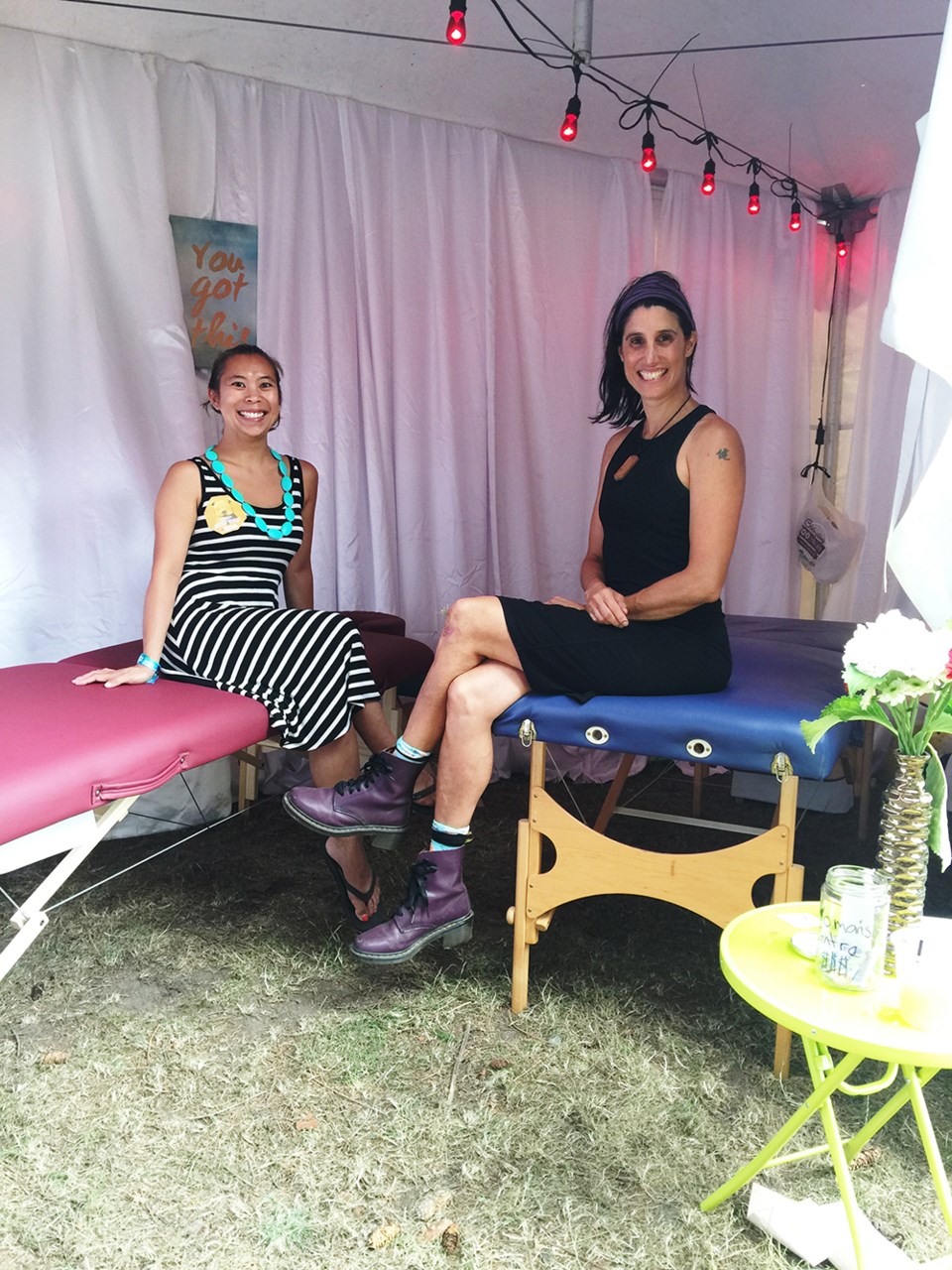It sounds like a pretty cool gig.
During the Squamish Valley Music Festival, Susan Chapelle and a team of other Squamish massage therapists treated the artists backstage.
In tents behind the two main stages, 16 therapists massaged tense musicians and sore crew in four-hour shifts of 15 minutes each from noon to 8 p.m. Friday through Sunday.
“When people are drunk, I stop,” Chapelle said with a laugh, although she stressed clients are extremely respectful and grateful for the service.
The therapists all volunteer their time but do receive free passes to the festival, Chapelle said. Any tips she receives, she takes to Howe Sound Women’s Centre, said Chapelle, who is also a District of Squamish councillor.
Due to patient-client confidentiality she couldn’t discuss particular clients, but she said one commonality is how amazed artists are by the landscape of Squamish.
“People don’t know that this place exists and when they come here and are amongst the mountains, underneath the Chief and there is massage, it is a real perk,” she said. Because the venue is snuggled between mountains, musicians often rave about the acoustics, she said.
While major bands sometimes have a travelling massage therapist with them, most bands don’t and it is unusual to have backstage massage at a festival, Chapelle said.
She ran a musicians’ clinic in Toronto for seven years and toured with a few bands as their therapist before coming to Squamish, which is why she originally approached festival organizers with the idea of setting up backstage.
Chapelle has kept the sign-up sheets from all the years and said it is fun to look at and see whom the therapists massaged.
“Some of them who are really famous they always sign like ‘Lady B,’ they won’t sign their real name to the paper,” she said.
Some musicians are superstitious and don’t want to change their routine before they perform, so they will come for treatment after their set, she said.
“Working with musicians is definitely a different sort of practice to have,” Chapelle said, “because you are working with what is their lifestyle – it is their livelihood – so their hands are their livelihood…. You have got to be really cautious about how you are treating them, how you are speaking to them, because they get anxiety, so you have to be calm, professional.”
Chapelle said she and the therapists offer the musicians tips to help them with better ways to treat their bodies.
“The biggest thing I notice with musicians is they do not treat themselves like athletes,” she said. “Athletes train for their sport. They are constantly in training with their body; they recognize their body is their instrument, whereas when you have an external instrument, often you are not in pain when you are playing your instrument…. Often you don’t injure yourself until you go play hockey or mow the lawn or something.”
Musicians often don’t relate their pain to the instrument that they are playing, she said.
She said this year the organization of the festival was amazing compared to other years.
“It was hiccupy the first few years,’” she recalled. Getting therapists their passes and transporting them to and from the venue was more complicated in years past, she said. This year, she said, everything ran very smoothly.



